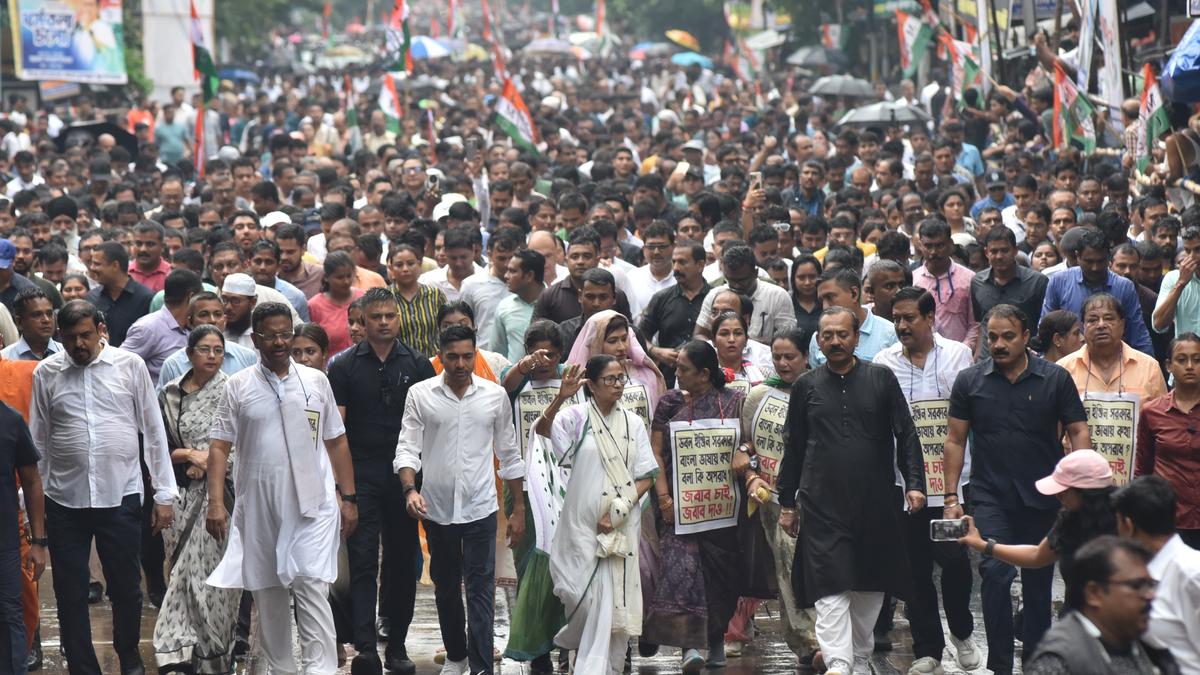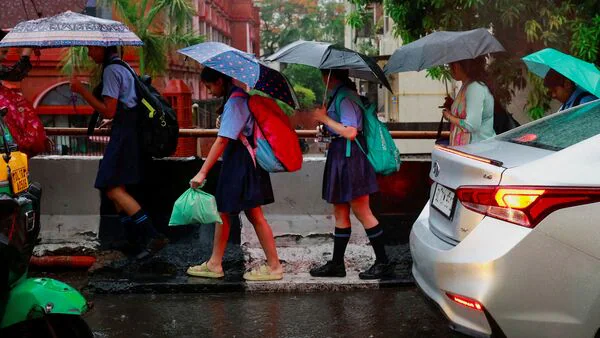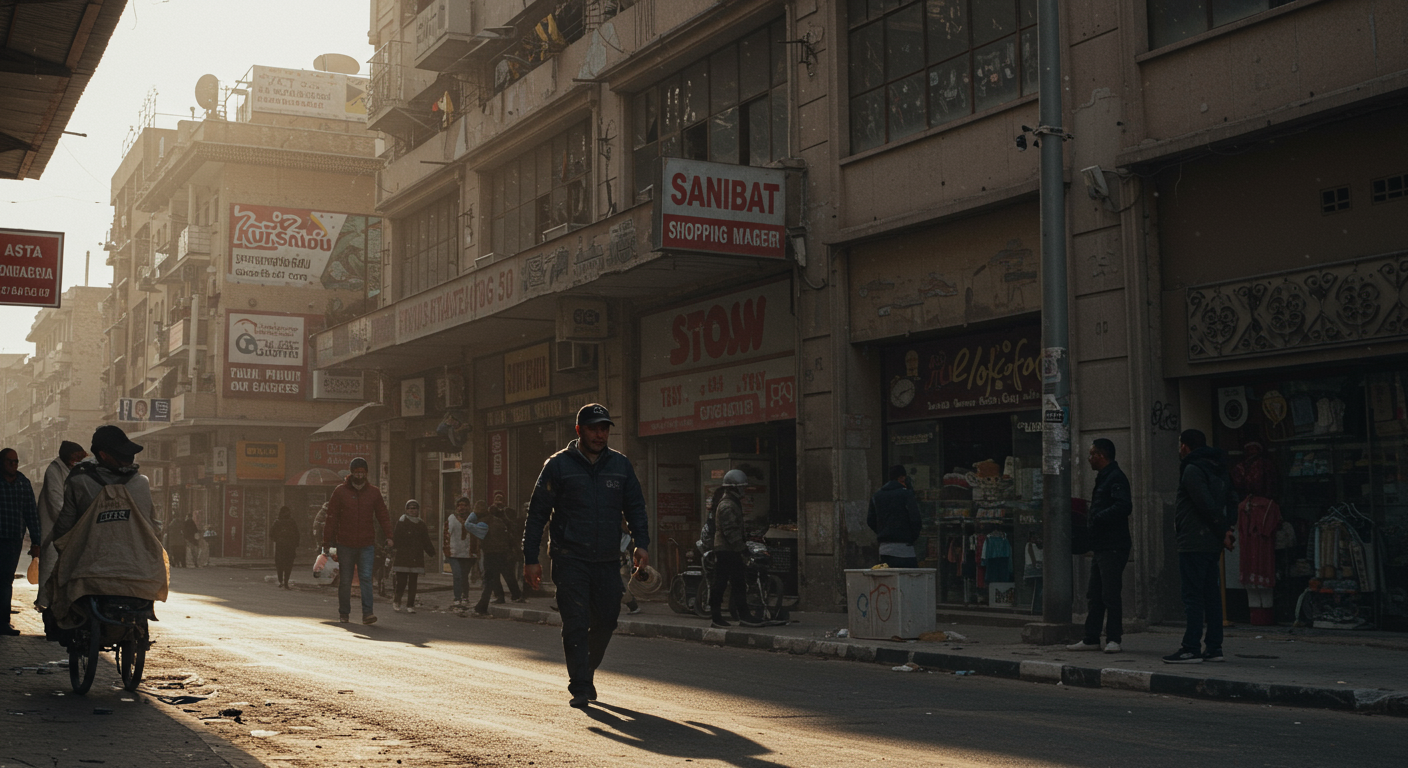Bengali Migrant Harassment: Powerful Warning from Mamata Banerjee
- Abhishek

Bengali Migrant Harassment by BJP and Mamata Banerjee’s Defiant Protest
West Bengal Chief Minister Mamata Banerjee took to the streets of Kolkata on July 16, 2025, leading a massive protest march against what she described as “systemic harassment” of Bengali-speaking migrants in BJP-ruled states. The demonstration, held despite pouring rain, sent a strong political message—not only about migrant rights but also about preserving Bengali cultural identity ahead of the 2026 assembly elections.
Mamata Banerjee’s Bold Rally for Migrant Rights
Banerjee’s resolve was clear during the march beginning at College Square and ending at Dorina Crossing. Hundreds of Trinamool Congress leaders, including Abhishek Banerjee, joined her rally of thousands, surrounded by tight security enforced by around 1,500 police personnel .
She highlighted disturbing reports of Bengali-speaking labourers being detained, profiled as foreigners, branded as Bangladeshi migrants, and stripped of basic services like water and electricity—all while holding valid ID proof such as Aadhaar, PAN, and EPIC cards .
Dire Political Warning to BJP
At the heart of Banerjee’s speech was a sharp warning: if BJP does not cease its harassment, it will face a “dire political backlash.” She even challenged authorities provocatively, saying, “Hold me in detention camps if you can,” and declared her intent to speak more in Bengali to assert cultural pride .
She promised fierce political resistance, declaring that TMC will fight “inch by inch” and is ready for the next round of ‘Khela Hobe’ ahead of the West Bengal elections .
Allegations of Centre’s Heavy-Handed Influence
Banerjee accused the central government and BJP of influencing the Election Commission and BJP-ruled states via back-channel notices to marginalize Bengali migrants . She asserted that this represents a broader campaign against Bengali identity, including suspicions about voter roll removals .
Wider Pattern of Harassment: Where Migrants Are Suffering
The issue isn’t limited to one region. Incidents have been reported in Odisha, Maharashtra, Rajasthan, Chhattisgarh, Haryana and Delhi—places where Bengali-speaking labourers are allegedly stopped, detained, and deprived of basic rights .
Banerjee questioned why this profiling is restricted to Bengalis, when other linguistic communities like Tamil, Nepali or Punjabi are also migrants yet face no similar actions .
Cultural Identity as Political Weapon
The rally was not just about migrant rights—it was a powerful reaffirmation of “Bengali asmita” (pride and identity) meant to stir voter sentiment ahead of elections. TMC is clearly banking on emotional resonance and grassroots momentum .
Conclusion: A Political and Cultural Inflection Point
By leading this protest, Mamata Banerjee has set a clear narrative: any continuation of harassment toward Bengali migrants may trigger major political consequences. This move merges cultural identity with political strategy, positioning her party for a fiercely contested lead-up to the 2026 elections.
What This Means Going Forward
Local reactions in states like Odisha and Haryana will be telling. Whether BJP reins in migrant-targeting or escalates will determine the strength of Banerjee’s warning. For Bengali migrants, the march highlighted their vulnerabilities and called national attention to the issue.







